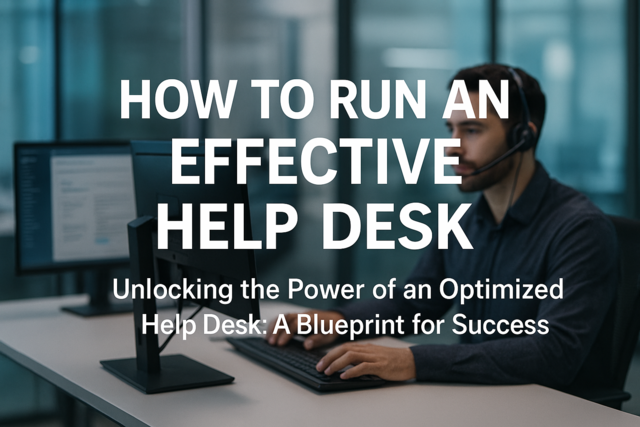Objectives:
- Learn about ergonomics.
- Review Outsourcing and Payroll.
- Know about office etiquette.
- Know Proper Telephone Techniques: Answering call, Making a call
Office Vocabulary
It is very important that you learn and communicate with proper office vocabulary. You should always attempt to spell words correctly. Learning to spell is important in communicating with other staff members. Knowing how to use email is also a necessary skill. Make use of a thesaurus, readily available on the Internet or in your word processing program.
You will want to familiarize yourself with some of the common vocabulary used around the office. You will be a better employee, and your workday will go smoother if you prepare yourself in skills such as this. Volunteering for a few hours a week would give you some insight into office policy and procedures.
Vocabulary: See websites.
Office vocabulary:
Ergonomics: This word originates from two Greek words:
Ergon , meaning "work ", and
Nomos , meaning "laws ".
Ergonomics is a science of all aspects of a job, including physical stresses and environmental factors.
In ergonomics, the goal is to design the job to the worker, instead of forcing the worker to fit the job.
There are many things scientists have discovered about working at a job or hobby that can be hurtful to a person's health. For example, repetitive or forceful motions or working in an awkward position can cause serious injuries.
It is important for an employer and a worker to consider good work environments and physical fitness to avoid these pitfalls.
An employer can supply a good work environment and equipment that is suitable for your work activities. Proper furnishings and equipment, together with their placement, is vital to performing with good work habits.
Maintaining Good Posture:
- Always use proper lighting, and avoid glare.
- Move furniture and position yourself to have proper posture.
- Always use proper lifting techniques. Exercise and use large muscles to gain overall strength and endurance.
- If you perform repetitive tasks, change tasks often in attempting to avoid overuse of joints and muscles.
- Perform exercises that increase flexibility and endurance. Move joints for flexibility. Stretching helps flexibility and release of tension.
- Take a few seconds for deep breathing and relaxing. Slow, relaxed breathing also relieves tension and other stress reactions. Stress may also be minimized by adequate vitamin B complex in the foods that are eaten.
Budget your time for adequate rest, eating, and for exercise times to practice good ergonomics in the workplace. One of the best exercise routines for office workers will include stretching the neck, shoulders, arms, and legs. Deep breathing not only supplies needed oxygen to your body, but also helps relax tense muscles. The worker can avoid injuries by practicing good health habits such as eating the correct amount of nutritious foods, exercising regularly, and having a good balance in life's activities. Each person is different and should be encouraged to do whatever is the best practice for his or her health.
Avoid mental and physical fatigue: Diversify your actions by changing activities often to include sitting, walking, looking at distant objects, and stretching.
Employers should adjust work procedures, work station design, and time lines to promote your overall health. They will be rewarded with your increased production, decreased absenteeism, less illness, better attitude, fewer injuries, and lower health insurance costs. Everyone will save on medical bills.
It is necessary to THINK: Avoid excess actions, especially noise, that would interrupt other workers. Avoid using time for personal, rather than work related activities.
Consider the way you affect other people's senses:
Other people at your place of work see you, they hear you, they smell you, they feel your attitude which may portray to them a bad taste; people may be sensitive to aromas, odors, or have an allergic reaction. Think: Have good taste in all your actions.
Think about how to avoid:
Noise excess.
Movement excess.
Poor Hygiene – clean and clean your clothes.
Excess aroma – perfumes and colognes are not recommended.
The consuming of excess time interruptions that are not business related, such as personal stuff and THE PHONE.
Avoid talking about other people and their personal lives.
If you instruct or supervise, do not use a condescending, snobbish, or disgusted tone of voice.
Office Etiquette Rules:
Dress properly, always clean.
Attitude is helpful, trying.
Growing in knowledge and skills, learn, focus.
Be on time! Do not be late!
Respect the business's confidentiality.
Do not be absent!
Do not offer advice, unless they ask for advice, you might tell about a positive experience that worked well for a friend of yours.
Help fellow workers, don't compete too much. Try to be helpful, not hurtful.
Maintain a positive attitude; always attempt to be positive and cheerful.
Office Email
Use your web browser to read about office email:
Rules of telephone etiquette : Have a professional manner. Caller should feel informed and appreciated.
- Speak clearly. Speak slowly and cheerfully, not too fast.
- Emphasize your words cheerfully, and take your time.
- Talk in your normal voice. Not too loud, and not too soft.
- Not too high pitched or too low pitched.
- Do not eat or drink, or have anything in your mouth.
- Do not use slang. Never swear. Always use "yes" and "no".
- Answer with good manners. Use Mr. or Ms. Do not speak too fast .
- Listen carefully. Focus. Give them your full attention .
A. When taking a message:
- Ask politely if you do not understand their speaking.
- Ask them to please speak slowly and carefully "so that I may understand what you are saying."
- Write it. Take notes on paper or on the computer keyboard.
- Ask: "How do you spell your name?" Repeat names and spell names. Or ask: "Would you spell your name for me?" or, "Do you spell your name __ __ __ __ ____ . I want to spell it correctly."
Most important is your attitude and demeanor. Be patient and helpful. Never show rudeness, or sigh, or give orders. Tell them politely what you will do for them, that you will be happy to take their name and phone number for a return call. Let them know if you will forward them to another worker's voicemail or take a phone number for a return call.
Be Accurate
If you have a poor quality connection with a problem hearing them, explain that you need to ask them again. Apologize for the poor connection. Write down and read to them what you wrote.
B. When Making a Call:
1. Identify yourself.
2. Tell them your name.
3. Tell them the name of your company.
4. Tell them the purpose of the call.
5. Confirm name of person you are speaking with.
a. "Is this _____?"
b. Repeat their name.
6. If you leave a message, make it short. Usually tell them:
a. Your name and the place where you are.
b. Your phone number.
c. Briefly why you called. Remember your company's confidentiality. Don't say more than is necessary.
Outsourcing
Large or small, your company requires the services of an experienced qualified professional to oversee your finances. It is most important to contract a CPA (Certified Public Accountant). The CPA is trained and must continue training on an ongoing basis. This is important because laws and procedures are always changing. Your CPA can help you monitor your finances keep records that are required by law, and will be able to keep you up-to-date on your IRS (Internal Revenue Service) tax filings. Your company should use a CPA from the beginning, from the startup of the company.
Your company does not want to find out too late about financial errors because this could be the sudden end of your company, and may be very costly. Often the CPA may be an attorney and can handle your legal tax matters as well. It would be best to also include your CPA in the payroll process. After setting up the procedures, you may be able to do the day-to-day record keeping, but laws and procedures change, and it is the responsibility of the CPA to know and act on these changes to guide your company.
Outsourcing payroll is becoming very common because the laws are changing continually. Your company may also want to subcontract some of your regular business to keep the company running smoothly.
More and more companies are turning to nonprofit, or to a not-for-profit, entrepreneurship because it is sometimes better for the financial health of the company or corporation.
At times, you may need the services of a Notary. Or you may be required to handle a matter long distance with a Proxy or Power of Attorney. It is a good idea to learn about these different ways of doing business.
Also because nonprofits are becoming more widespread, many workers in the business field are learning how to apply for and write a grant proposal. There is plenty of material readily available to learn more about writing for proposed grants.
Although the payroll may be outsourced or contracted to another firm, it is well to learn the basics of a company's payroll in the field of business mathematics. An overview is useful for checking for accuracy or for any emergency when the payroll process may be interrupted and the company switches to another temporary procedure. It is important to pay employees in a timely manner when their pay is due.
Deductions:
Federal Income Tax.
State Income Tax.
Social Security Tax (FICA).
Medicare Tax.
Unemployment Insurance.
Pension Plans, Savings Plans.
Health Insurance.
All employees complete a W-4 form for the IRS at the time they are hired.
When you are at the office: ask questions! You want to do things the correct way.
At work, you must: think, reason, and make sound decisions:
Every employer has different expectations and many different sets of conduct (usual rules of conduct) so:
ASK: Ask someone to direct you toward the proper expert to learn what the employer feels is important to do a good job and to do it correctly.
Things Not to Say at Work
Balance in Life
Objectives:
- Balance your life's activities.
- Set goals for healthy choices.
- Learn about ergonomics.
- Take care of your health.
- Laugh.
- Be a Lifelong Learner.
1. Time is Money?
Spend Time or Spend Money
Every day you make decisions about how to spend your time, energy, and money. The decisions may result in series of tradeoffs. A new CD costing $12 would leave less money to buy something else. An hour for morning exercise may be traded for study time or time for sleeping.
There are 24 hours in a day, and each of us is different. We as individuals choose a balance in life's activities for ourselves. The time, space, and energy we have or plan for is to be budgeted thoughtfully.
One way first of all is to balance our life's time and energy between our work life and our private life.
You might spend some time researching for your goals that you choose in the present, near future, and distant future. There is much information in the wonderful world of the web to help you design your life. You, of course, must research and choose what is right for you, not necessarily what some expert recommends for you, or automatically choose for yourself what seems right for your friend.
Much of the information you can find without spending any money. The dot GOV (.gov) websites offer many brochures for free from government agencies whether they are federal, state, or local.
Also, you can find some information on dot ORG (.org) websites for free as these are nonprofit or not-for-profit organizations. Oftentimes you can find some basic information for free, and they may ask you to pay or to contribute a donation if you are seeking further information or help.
Then there are the dot COM (.com) websites that are really businesses trying to bring in a lot of money, so plan on paying for their services. They can be pretty nifty at advertising, too, so be careful that you spend your money wisely. Think carefully about what exactly you are paying for when you submit your money to them.
A life coach is becoming very popular, and there is a lot of information on how to balance the activities in your life with time, space, money, and energy to expend. Some of the areas you may want to consider in your life's activities are:
- Family.
- Health.
- Career.
- Relationship.
- Creative.
- Financial.
- Fun.
- Social.
The order of importance of your activities that you budget for your time, space, money, and energy differs from person to person. You choose for yourself what is important to you. The important thing is that you make a decision that is good for you and be happy with yourself. Yes, you can juggle your time and energy back and forth, and revise your goals, but always be positive and happy with your decision. You can always go forward from where you are.
One area relating to the balance of life's activities relates to good health habits. Maintain balance in eating, drinking, resting, relaxing, and physical and mental exercises. Keeping physically fit can increase your work efficiency, learning efficiency, growing in knowledge and abilities, and ultimately your income and standard of living will improve. You will be able to focus better and longer, and working with business mathematics requires this for practice and for improvement. Be a lifelong learner.In your design, you may consider the environment also. And consider what the previous generations have left behind as a legacy for you to live your life. As well, as your time, energy, and finances, also consider the efficient use of materials that you use. You are one of millions, so do your part to use wisely, and this is multiplied by the millions if everyone does his part in conservation of these resources.
Personally, too, you might consider that you have a good personal balance for your physical, mental, and spiritual health. Take care of yourself. Plan and budget your time for healthy choices. Think about how you are going to include important activities into your schedule:
- Eating.
- Resting, sleeping.
- Exercising and stretching.
- Enjoyment.
- Going forward.
- Fresh air and natural light.
- Being a Lifelong Learner.
If you would like to browse, "Google" the following:
1. "Healthy Choices"
2. "How to Set Personal Goals"
Next to laughing, walking is the very best activity for overall health. So walk! Walk, Walk, Walk!!! And laugh! Laugh! Laugh!!!
You may decide to use your time and energy in a certain amount of work, learning, and saving for the future. You will not always be at your best performance. We all have our ups and downs in time and energy.
And as you become older, you will find that time is going by faster. Younger people are able to move faster. You may slow down, and you will be using a different set of skills than you are using now.
You can always look forward to learning. Lifelong learning is having goals and moving toward them. Stay current with skills.





























